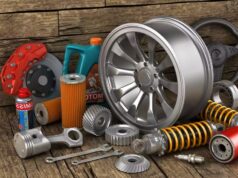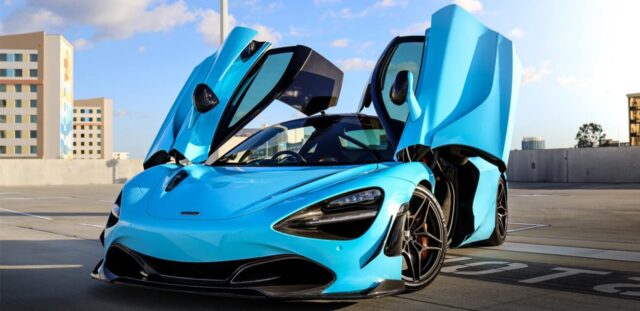
So you’re in the market for an exotic car and wondering if it’s worth the splurge. Will a Ferrari, Lamborghini, or McLaren hold its value over time or depreciate faster than you can accelerate from 0 to 60?
You’ve heard conflicting opinions and want to know the truth. The reality is it depends. Some exotic cars hold their value shockingly well, while others plummet in price after just a few years.
When contemplating purchasing an exotic car, it’s crucial to consider your options carefully. Additionally, suppose you’re ever in Phoenix and want to experience the thrill of driving a luxury or exotic car without the commitment of ownership. In that case, you can rent a luxury car in Phoenix, and Fisher Luxury Rentals strives to give you the highest quality and performance.
If you go in with realistic expectations, do your homework, and choose a model known to stand the test of time, an exotic car can be a solid investment and thrill you for years to come.
But go in blindly, and you may be left with an ultra-fast money pit. Here’s what you need to know before taking the exotic car values.
How Much Do Exotic Cars Depreciate Over Time?

Exotic cars are thrilling to own, but the hard truth is they typically lose value quickly. How fast they depreciate depends on a few factors, but you can expect most exotics to drop 50-70% in the first 5 years.
The make and model matter a lot. Limited production hypercars like the McLaren P1 or Porsche 918 Spyder tend to hold value better over time due to their rarity and status. High-volume models like the Audi R8 and Mercedes SL, on the other hand, experience higher depreciation.
Mileage and condition are also key. The lower the mileage and the better the condition, the less value is lost. Most exotic owners don’t rack up high miles, but poor maintenance or damage can significantly impact resale value.
Economic conditions play a role as well. During recessions, the exotic car market softens, and depreciation accelerates. In boom times, demand increases, and cars tend to hold value better.
The bottom line is that while exotic cars evoke passion, their eye-watering sticker prices mean massive depreciation is inevitable. The good news is if you’re willing to buy used, you can land an exotic for a fraction of the new price and still experience all the thrill of ownership.
For the ultimate value, look for a model at least 3 to 5 years old with average or below-average mileage for the year. With some patience, you might just find your dream car at a price you can afford!
Factors That Affect an Exotic Car’s Resale Value
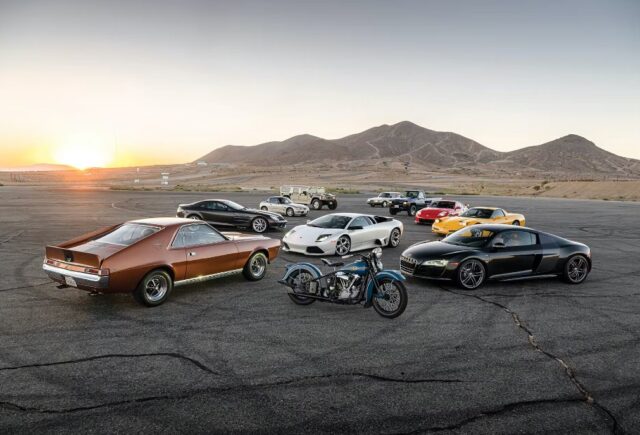
Exotic cars are thrilling, but will they hold their value over time? A few key factors determine an exotic car’s resale value.
- The make and model matter ─ Generally, established luxury brands like Ferrari, Lamborghini, and Porsche tend to hold value the best over the years. More obscure brands may depreciate faster. Limited edition or rare models, especially those with racing pedigrees, also typically hold value better.
- Mileage and condition are important ─ The lower the mileage and the better the condition, the higher the resale value. Regular maintenance and service records also add value. If you put a lot of miles on your exotic or it shows heavy wear and tear, expect a lower asking price.
- Current trends in the collector car market impact values ─ When a particular model becomes popular with collectors, values go up. If a model falls out of fashion, values may decrease. Following auction results for similar exotic cars can help determine current market values.
- Optional add-ons and upgrades can increase resale value ─ Things like premium sound systems, custom wheels, racing-inspired modifications, hand-stitched leather interiors, and special badging or accents may allow you to ask for a higher price.
Ultimately, the most valuable exotic cars are usually classics in pristine condition with timeless styling and performance. If you buy a future classic and keep it in mint condition, you’ll have the best chance of getting a good portion of your money back when it’s time to sell. But with exotic cars, value is only sometimes the top priority – the thrill of owning and driving these automotive works of art is worth it for any enthusiast.
The Pros and Cons of Buying an Exotic Car

Buying an exotic car can be an exhilarating experience, but it also has advantages and disadvantages. Exotic cars are known for their unique design, exceptional performance, and high price tags. Here are some pros and cons to consider when buying an exotic car:
Pros
- Prestige and exclusivity ─ Exotic cars are rare and often associated with prestige and exclusivity. Owning one can be a status symbol that sets you apart from the crowd.
- Exceptional performance ─ Exotic cars are engineered for high-performance driving. They often come equipped with powerful engines, advanced suspension systems, and cutting-edge technology that deliver an extraordinary driving experience.
- Stunning design ─ Exotic cars are known for their striking and innovative designs. They often push the boundaries of automotive aesthetics, making them visually captivating and unique.
- Attention-grabbing ─ Exotic cars turn heads and attract attention wherever they go. Owning an exotic car can fulfill that desire if you enjoy being noticed and admired.
- Resale value potential ─ Some exotic cars, especially limited-production models or those from renowned brands, have the potential to appreciate value over time. This can result in a profitable investment if you choose the right model.
Cons
- High purchase price ─ Exotic cars come with steep price tags, often well into the six or seven figures. The initial purchase cost can be a significant financial commitment.
- Depreciation ─ While some exotic cars appreciate, many tend to depreciate rapidly. This means that the resale value of your exotic car could decrease substantially over time, resulting in a potential financial loss.
- High maintenance and repair costs ─ Maintenance and repair costs for exotic cars are typically much higher than those for mainstream vehicles. Parts can be rare and expensive, and specialized mechanics may be required for servicing.
- Limited practicality ─ Exotic cars often prioritize performance and design over practicality. They might need more cargo space, better fuel efficiency, and a lack of features commonly found in everyday vehicles.
- Higher insurance costs ─ Insuring an exotic car is usually more expensive due to the high value of the vehicle and the potential repair costs. Insurance premiums can be significantly higher compared to regular cars.
- Limited availability of parts ─ Obtaining replacement parts for exotic cars can be challenging, especially for older or rare models. This can lead to longer downtime and higher costs for repairs.
- Driving constraints ─ Owning an exotic car might require you to adhere to certain driving restrictions, especially if the car has limited ground clearance, advanced features, or specific requirements.
- Attention and risk ─ While attention can be a pro, it can also attract unwanted attention from thieves, vandals, and aggressive drivers. Exotic cars can be targets for theft and vandalism due to their high value.
When Is the Best Time to Sell Your Exotic Car?
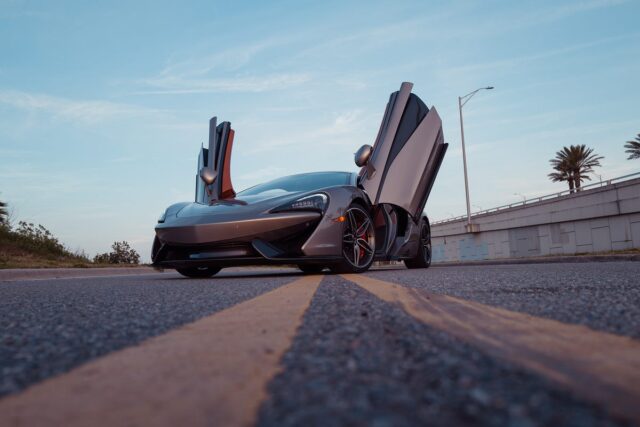
The best time to sell your exotic car is when you can get the highest price while balancing your needs. Several factors determine when values are likely to be strongest.
Demand for certain models changes over time based on trends and new options coming onto the market. The latest, greatest exotic will always command a premium when first released. If you have one of these coveted cars, the first year or two, after it debuts, is the prime time to sell. Values start declining once the next model year comes out or competitors introduce something newer.
Exotic car values also follow seasonal trends. Spring and summer are peak driving seasons, so prices are higher from April through August. People are excited to get out on the open road, go for a cruise with the top down, and show off a little. The winter months typically see a drop in prices and activity. If you’re not in a hurry, aim to list your car in the late spring or summer.
Ultimately, your needs and timing will also determine when selling makes sense. If you’ve fallen out of love with your exotic car or want to move on to a new model, sell when ready. Just go in with realistic expectations about the current market value. An exotic car broker or dealer that specializes in your particular brand or model can provide guidance on estimated selling prices based on mileage, condition, options, and current trends. They can also help you determine the optimal selling strategy to get the most for your car.
The biggest takeaway is not to hold onto an exotic car for too long, expecting values to increase over time significantly. While some limited production or historically significant models may become collectible, most exotic cars depreciate, and selling at the right time is key to maximizing your return on investment. Stay on top of trends and be ready to move when demand is high, and values are strong.
Top Exotic Cars That Hold Their Value Surprisingly Well
Exotic cars are thrilling to drive and be seen in, but many people worry about how quickly they may depreciate. However, some exotic models hold their value surprisingly well over time. Here are a few of the top exotic cars that retain strong resale values:
Porsche 911
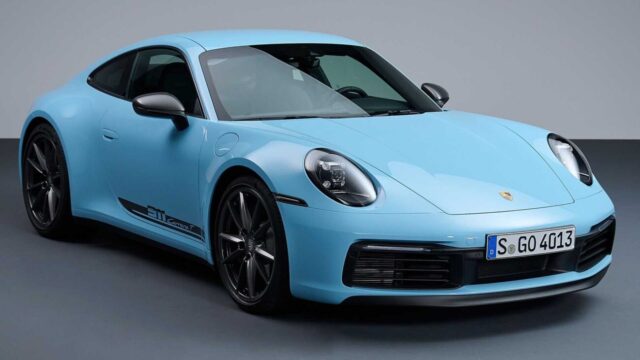
The iconic Porsche 911 is a legend for a reason. Its timeless style and performance have allowed it to hold value very well. The latest 992 generation 911 was launched in 2020, but 10-year-old 911 models from 2011 still sell for around $50,000 to $70,000, depending on the trim and options. That’s only a 30-40% drop from the original price.
Ferrari 458 Italia
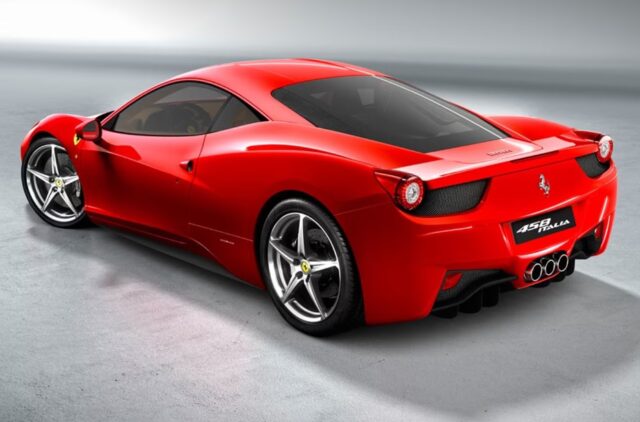
Ferrari’s mid-engine 458 Italia supercar was produced from 2011 to 2015, and clean examples with average miles are still selling for $150,000 to $220,000 today. That’s a 50-60% depreciation over a decade for an exotic Italian sports car. The 458 Italia represents a sweet spot of modern performance and styling in a package that has already stood the test.
Aston Martin Vanquish
Aston Martin’s range-topping grand tourer, the Vanquish, spanned 2012 to 2018 and originally sold for around $300,000. Today, a 6-year-old Vanquish can still command $150,000 to $220,000, representing around 50% of its original MSRP. The Vanquish’s timeless styling, hand-crafted cabins, and throaty V12 engines give it an appeal that endures.
Lamborghini Gallardo
Lamborghini’s most successful model, the Gallardo, was built from 2003 to 2013. While the earliest models have dropped to around $80,000, 10-year-old Gallardos from the 2012 and 2013 model years with the 550-2 and Performance trims can still sell for $150,000 to $195,000. That’s only a 50% drop in value over a decade for an exotic Italian supercar. The Gallardo has proven itself a future classic.
The takeaway is that exotic cars from prestigious brands with timeless styling and performance can hold up well over time compared to standard depreciation. Choosing a model toward the end of its production run also helps maximize retained value. While no car is a guaranteed investment, you may be pleasantly surprised at how well certain exotic models can hold value for a decade or more.
So there you have it, whether exotic cars hold their value over time. As you’ve seen, the answer could be more straightforward. Some models decline rapidly, especially those that rely more on hype and prestige.
But others, particularly limited edition or highly sought-after classics, can appreciate substantially. At the end of the day, the most important thing is that you go into your purchase with realistic expectations.
Value retention may matter less if you want an exotic, primarily for the thrill of ownership and performance. But if holding value is a priority, research and consider models with proven track records. Exotic cars can be fun; ensure you know what you’re getting into!


